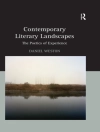In Winter Quarters two performers past their prime have come to the provincial town of Colonia Vela, the setting of A Funny Dirty Little War, to open a local festival. Strangers to each other, this worn-out boxer and has-been tango singer become loyal friends — even unto death.
The boxer has been selected to fight the local hero, the army’s champ who has national ambitions. It soon becomes clear that the town vigilantes and military toughs don’t mean for any trophies — or the mayor’s daughter — to go to these ‘losers’.
As the underdogs try to go the distance, Soriano’s gritty, Chandleresque prose builds a harrowing picture of a society in the grip of a bizarre and terrifying struggle.
İçerik tablosu
Winter Quarters
About the Author
About the Translator
About Readers International
Yazar hakkında
NICK CAISTOR is a British journalist and translator who has worked for the BBC Latin American Service, for Index on Censorship magazine and for other London-based international organisations. After graduate studies in French and Spanish, including an M.A. in Spanish language and literature from London University, he lived for two years in Argentina, and he has continued travelling extensively in the region. He edited Nunca Mas, the famous report on political killings and disappearances in Argentina, and also The Faber Book of Latin American Short Stories. In 1984 his highly acclaimed translation of To Bury Our Fathers from Readers International introduced Sergio Ramírez to English-language audiences for the first time, and his translation of Ramírez’ Stories also was published by Readers International (1987). In 1986 his translation of Osvaldo Soriano’s A Funny Dirty Little War from Readers International introduced this acclaimed writer — the best-selling writer in Argentina at the time — to English-language audiences. Winter Quarters, the sequel to A Funny Dirty Little War, was translated by Nick Caistor and published by Readers International in 1990. Nick Caistor’s other translations include a second novel Castigo Divino by Sergio Ramírez, poems by Claribel Alegría and other El Salvadorean and Nicaraguan poets, stories by Julio Cortázar and Haroldo Conti and the novel The Shipyard by Uruguayan Juan Carlos Onetti.












